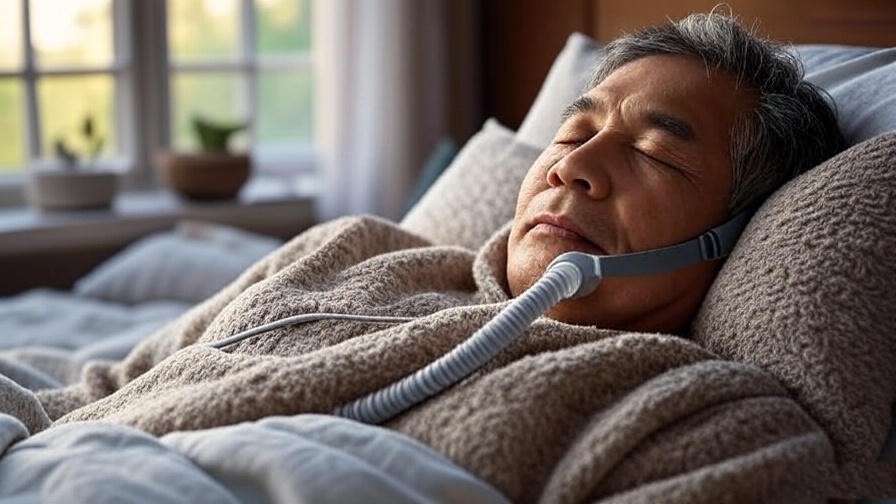It’s 10 PM, and you’re staring at the clock, wondering, “How long until 4 AM?” Maybe you’re an aspiring early riser aiming to transform your mornings, or perhaps you’re a shift worker struggling to align your sleep schedule. Whatever your reason, calculating how long until 4 AM is more than a simple math problem—it’s the first step toward unlocking a powerful routine that boosts productivity, mental clarity, and holistic well-being. In this comprehensive guide, we’ll explore why 4 AM wake-ups are a game-changer, how to calculate the time until your goal, and how to craft a sleep schedule that sets you up for success. Backed by science and expert insights, this article will empower you to take control of your mornings and thrive.
Why 4 AM? Understanding the Significance of Early Wake-Up Times
The Science Behind Early Rising

Waking up at 4 AM aligns with your body’s natural circadian rhythm, the internal clock that regulates sleep and wakefulness. According to the National Sleep Foundation, early wake times can enhance cognitive function and emotional stability when paired with adequate sleep. Research from the Journal of Biological Rhythms (2020) shows that early risers often experience sharper focus and reduced stress due to uninterrupted morning hours. This time of day is ideal for meditation, exercise, or quiet reflection—practices that anchor holistic well-being. By rising at 4 AM, you tap into a window of peak mental clarity, setting the stage for a productive day.
Common Reasons People Aim for 4 AM
Why do people set their alarms for 4 AM? For some, it’s about reclaiming time before the world wakes up. Entrepreneurs like Tim Cook, CEO of Apple, swear by early mornings for strategic planning. Parents may use this quiet time for self-care, while night owls might aim for 4 AM to reset erratic schedules. Shift workers, students, or wellness enthusiasts also gravitate toward early wake-ups to maximize productivity. Whatever your motivation, a 4 AM start offers a rare opportunity to focus on personal goals, whether it’s writing, meditating, or exercising, without distractions.
The Connection to Holistic Well-Being
Early rising isn’t just about productivity—it’s a cornerstone of holistic health. Dr. Matthew Walker, a renowned sleep scientist, notes in his book Why We Sleep that consistent wake times strengthen circadian rhythms, reducing anxiety and improving mood. A 4 AM routine creates space for mindfulness practices like meditation or journaling, which studies from the American Psychological Association (2021) link to lower stress and greater life satisfaction. By prioritizing early mornings, you cultivate mental resilience, physical vitality, and a deeper sense of purpose, all key pillars of well-being.
How to Calculate “How Long Until 4 AM?”
Simple Time Calculation Methods
Calculating how long until 4 AM is straightforward with a bit of math. If it’s 10 PM, subtract the current time from your target wake-up time: 4 AM (next day) is 4:00 + 24:00 = 28:00. Then, 28:00 – 22:00 (10 PM) = 6 hours. For quick mental math, use this formula: (Target time – Current time) % 24. If it’s 1 AM, 4:00 – 1:00 = 3 hours. For times after midnight, subtract directly from 4 AM. Practice this a few times, and it becomes second nature, helping you plan your bedtime with precision.
Tools and Apps for Time Tracking
Technology can simplify your calculations. Apps like Sleep Cycle or Oura Ring not only track sleep but also suggest optimal wake times based on your sleep cycles. Set a 4 AM alarm using your smartphone or a smart home device like Amazon Echo, which can gently wake you with soothing sounds. For a low-tech option, a basic clock app can display the time difference until 4 AM. These tools ensure you stay on track, especially when adjusting to a new routine or managing irregular hours.
Adjusting for Time Zones or Irregular Schedules
If you’re traveling or working shifts, aligning with 4 AM can be trickier. Use a world clock app like Time Buddy to convert 4 AM to your local time zone. For example, if you’re in New York (EST) and traveling to London (GMT), 4 AM EST is 9 AM GMT. Shift workers can gradually adjust their sleep schedule by shifting bedtime 15–30 minutes earlier each day. Dr. Allison Harvey, a sleep expert at UC Berkeley, recommends maintaining a consistent wake time even on irregular schedules to stabilize your circadian rhythm.
Crafting the Perfect Sleep Schedule for a 4 AM Wake-Up
Determining Your Ideal Bedtime
To wake up refreshed at 4 AM, aim for 7–9 hours of sleep, as recommended by the CDC. Sleep occurs in 90-minute cycles, so plan your bedtime to complete full cycles. For 7.5 hours of sleep (5 cycles), count backward from 4 AM: 4:00 AM – 7:30 = 8:30 PM bedtime. For 9 hours (6 cycles), aim for 7:00 PM. Below is a quick reference table:
| Sleep Duration | Bedtime for 4 AM Wake-Up |
|---|---|
| 6 hours | 10:00 PM |
| 7.5 hours | 8:30 PM |
| 9 hours | 7:00 PM |
Choose a bedtime that fits your lifestyle and stick to it for consistency.
Preparing Your Body for Early Sleep
Falling asleep by 8:30 PM requires preparation. Limit blue light exposure from screens at least 1–2 hours before bed, as Harvard Medical School research shows it suppresses melatonin, the sleep hormone. Avoid caffeine after 2 PM, as it can linger in your system for 6–8 hours. Create a calming bedtime routine: dim the lights, read a book, or practice gentle yoga. A warm bath 30 minutes before bed can also lower your body temperature, signaling it’s time to sleep. These habits make early bedtimes achievable and sustainable.
Overcoming Challenges of Early Bedtimes
Early bedtimes can clash with social plans or evening distractions. To stay on track, communicate your goals to friends and family, scheduling social events earlier in the day. If falling asleep is tough, try progressive muscle relaxation or a guided meditation from apps like Calm. Avoid heavy meals or alcohol close to bedtime, as they disrupt sleep quality. Dr. Michael Breus, a clinical psychologist, suggests keeping a sleep journal to identify patterns and adjust habits, ensuring you’re ready for that 4 AM wake-up.
Building a Morning Routine That Maximizes Your 4 AM Start
Structuring Your First Hour
A purposeful 4 AM routine sets the tone for your day. Try this sample schedule: 4:00–4:10 AM for light stretching to wake your body, 4:10–4:30 AM for meditation to center your mind, and 4:30–5:00 AM for journaling or planning your day. This structure leverages the quiet morning hours for focus and intention. According to a 2022 study in Frontiers in Psychology, morning routines that include mindfulness practices enhance emotional regulation and productivity throughout the day.
Incorporating Holistic Practices

Early mornings are perfect for holistic practices that nurture mind and body. Try a 10-minute yoga flow to boost flexibility and energy, or practice gratitude journaling to cultivate positivity. Breathwork, like the 4-7-8 technique, can reduce stress and improve focus. Meditation coach Tara Brach emphasizes that morning mindfulness “creates a ripple effect of calm and clarity.” Even 5 minutes of intentional breathing can ground you, making your 4 AM start a powerful tool for well-being.
Productivity Hacks for Early Risers
The early hours are ideal for tackling high-priority tasks. Use the Pomodoro technique (25-minute focused work sessions) to maintain momentum. Batch similar tasks, like responding to emails or brainstorming ideas, to maximize efficiency. Research from the University of Chicago (2023) shows that cognitive performance peaks in the early morning for most people. Create a daily to-do list at 4:30 AM to prioritize tasks, ensuring you make the most of your uninterrupted time.
The Role of Sleep Quality in Achieving Your 4 AM Goal
Optimizing Your Sleep Environment
High-quality sleep is essential for waking up at 4 AM feeling refreshed. The National Sleep Foundation recommends a bedroom temperature of 60–67°F to promote restful sleep. Use blackout curtains to block external light, which can disrupt melatonin production, and consider a white noise machine to drown out ambient sounds. Invest in a supportive mattress and breathable bedding to enhance comfort. Dr. Rachel Salas, a sleep neurologist at Johns Hopkins, emphasizes that a tailored sleep environment “can significantly improve sleep efficiency,” ensuring you wake up energized for your early start.
Nutrition and Lifestyle Factors
Your diet and lifestyle play a critical role in sleep quality. Avoid heavy meals or spicy foods within 3 hours of bedtime, as they can cause indigestion and disrupt sleep. Incorporate sleep-friendly foods like almonds, kiwi, or chamomile tea, which contain nutrients like magnesium and antioxidants that promote relaxation. Regular exercise, ideally 30 minutes daily, improves sleep quality, but avoid vigorous workouts close to bedtime. A 2021 study in Sleep Medicine found that moderate aerobic exercise in the morning or afternoon enhances deep sleep, making it easier to maintain a 4 AM wake-up.
Monitoring and Improving Sleep Quality
To ensure you’re getting restorative sleep, track your sleep cycles using devices like Fitbit or apps like Sleep Cycle, which analyze REM and deep sleep stages. Aim for 20–25% of your sleep in deep sleep and 20–25% in REM, as these stages support physical recovery and memory consolidation. If your sleep quality is poor, experiment with adjustments like reducing screen time or practicing a consistent bedtime routine. Dr. Charles Czeisler, a sleep expert at Harvard, suggests reviewing sleep data weekly to identify trends and optimize your schedule for a successful 4 AM routine.
Addressing Common Pain Points for Early Risers
Feeling Groggy After Waking at 4 AM
Waking up at 4 AM can sometimes leave you feeling groggy, a phenomenon known as sleep inertia. To combat this, splash cold water on your face or do a quick 5-minute walk to boost alertness. A 2020 study from Stanford University found that exposure to natural light (or a sunrise alarm clock) within 30 minutes of waking reduces sleep inertia by signaling wakefulness to your brain. Avoid hitting the snooze button, as it fragments sleep cycles and worsens grogginess. Instead, start your morning with a glass of water to rehydrate and kickstart your energy.
Staying Consistent with Early Wake-Ups
Consistency is key to making 4 AM wake-ups sustainable. Gradually shift your bedtime 15–30 minutes earlier each night to ease the transition. Use habit-tracking apps like Habitica or Streaks to monitor your progress and stay motivated. Partnering with an accountability buddy—someone who also wakes early—can reinforce your commitment. Sleep coach Amy McCart from the Sleep Foundation advises setting a small reward, like a favorite coffee, for sticking to your routine for a week. Over time, your body will adapt, making 4 AM feel natural.
Balancing Early Rising with Social Life
Early bedtimes can conflict with social plans, but balance is achievable. Schedule dinners or outings earlier in the evening, ideally before 7 PM, to preserve your bedtime. Communicate your goals to loved ones, explaining how early rising supports your well-being. For example, Sarah, a wellness coach and early riser, hosts “sunrise meetups” with friends to align social time with her schedule. If late nights are unavoidable, prioritize sleep recovery the next day by napping for 20–30 minutes or slightly extending your sleep the following night.
The Bigger Picture: How a 4 AM Routine Boosts Holistic Well-Being
Mental Health Benefits

Waking up at 4 AM creates a quiet space for mindfulness, which has profound mental health benefits. A 2021 study in the American Psychological Association Journal found that morning mindfulness practices, like meditation or gratitude exercises, reduce anxiety by up to 30%. The solitude of early mornings allows you to process emotions, set intentions, and cultivate resilience. Dr. Jon Kabat-Zinn, a mindfulness expert, notes that “early mornings are a sacred time for self-reflection,” helping you start the day with clarity and emotional balance.
Physical Health Benefits
A consistent 4 AM wake-up supports physical health by stabilizing your circadian rhythm. The World Health Organization emphasizes that regular sleep patterns improve metabolism, immune function, and cardiovascular health. Early risers are also more likely to incorporate morning exercise, which boosts endorphins and energy levels. A 2022 study in The Lancet linked consistent sleep schedules to a 20% lower risk of chronic diseases like diabetes. By prioritizing sleep and early wake-ups, you invest in long-term vitality and physical well-being.
Long-Term Productivity and Happiness

A 4 AM routine fuels long-term success and happiness. Take Arianna Huffington, who credits her early morning routine for enhancing her decision-making as a media mogul. By tackling high-value tasks in the morning, you build momentum for the day, fostering a sense of accomplishment. A 2023 study in Nature Human Behaviour found that early risers report higher life satisfaction due to structured routines and goal progress. Over time, this habit compounds, leading to greater productivity, confidence, and fulfillment.
FAQs About Waking Up at 4 AM
How long will it take to adjust to a 4 AM wake-up time?
Adjusting to a 4 AM wake-up typically takes 1–2 weeks. Shift your bedtime gradually (15 minutes earlier each night) and maintain consistency, even on weekends. Use a sunrise alarm clock to ease the transition and track your progress with a sleep journal.
What if I can’t fall asleep early enough for a 4 AM wake-up?
If falling asleep by 8:30 PM is challenging, try relaxation techniques like progressive muscle relaxation or a guided meditation from apps like Headspace. Avoid screens 2 hours before bed and create a wind-down routine with calming activities like reading or stretching.
Is waking up at 4 AM healthy for everyone?
Not everyone thrives on a 4 AM wake-up. Chronotypes—your natural sleep preference—vary. Night owls may struggle more than morning larks. Consult a sleep specialist if early rising feels unsustainable or causes fatigue, as individual needs differ.
How can I stay motivated to wake up at 4 AM consistently?
Set clear goals for your morning (e.g., writing, exercise) and tie them to a larger purpose, like personal growth. Use habit trackers, reward small milestones, and share your journey with a supportive community to maintain motivation.
Conclusion
Waking up at 4 AM is more than a time on the clock—it’s a gateway to transforming your sleep, productivity, and holistic well-being. By understanding how long until 4 AM and crafting a sleep schedule that supports early rising, you can unlock quiet mornings for mindfulness, goal-setting, and personal growth. Backed by science and expert insights, this guide offers practical tools to make your 4 AM routine sustainable and rewarding. Try it for 7 days: calculate your bedtime, optimize your sleep environment, and build a morning routine that inspires you. As sleep expert Dr. Michael Breus says, “Early mornings are your chance to design the life you want.” Share your experience in the comments or on social media—what will you do with your 4 AM start?













